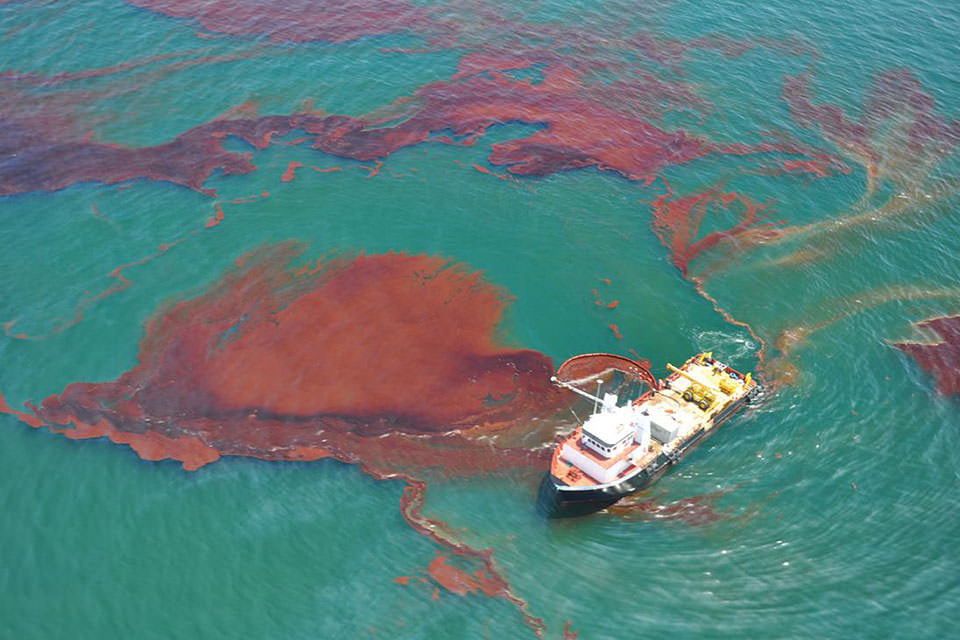What is a Natural Resource Damage Assessment?
A Natural Resource Damage Assessment is a process to determine the appropriate type and amount of restoration needed to offset impacts to fisheries, wildlife, habitats, and human uses impacted by oil spills, hazardous waste sites, and vessel groundings.

A vessel skims oil spilled after the Deepwater Horizon explosion in the Gulf of America (formerly Gulf of Mexico) in April 2010.
Natural Resource Damage Assessment (NRDA) is the legal process that federal agencies like NOAA — together with states and Indian tribes — use to evaluate the impacts of oil spills, hazardous waste sites, and ship groundings on public natural resources along the nation's coasts and throughout its interior.
NOAA and these partners, referred to collectively as natural resource trustees, work together to identify the extent of natural resource injuries, the best methods for restoring them, and the type and amount of restoration required. In addition to studying impacts to the environment, the NRDA process includes assessing and restoring the public's lost use of injured natural resources (such as recreational fishing or swimming).
In the event that the responsible party (the entity whose property or actions caused the injury) refuses to pay to restore the injured resources, NOAA and its co-trustees may file a lawsuit or, in the case of an oil spill, submit a claim to the Oil Spill Liability Trust Fund.
NOAA's responsibilities during a NRDA include:
- A preliminary assessment to determine whether any impacts have occurred. Scientists may collect data, review scientific literature, and use mathematical models to help predict the effects of the incident on trust resources.
- Injury assessment and restoration planning, during which the trustees quantify the injuries through scientific and economic studies and then identify potential restoration projects to offset the losses. These projects may include beach and shoreline enhancements, creation of oyster reefs or other shellfish habitats, and programs to monitor the recovery of species and habitats. A restoration plan is then released for public feedback.
- Restoration aims to return the injured resources to their original condition and compensate the public for lost use of the resources as well as the time it takes the resources to recover . Throughout the NRDA process, the co-trustees often work with the responsible party, which pays for the assessment and restoration and may participate in restoration activities.
Working with our co-trustee partners and industry, NOAA has helped recover over $10.4 billion dollars to restore ecosystems across the country that were injured by pollution. These restoration projects have restored wetlands, beaches, coral reefs, and seagrass. They have removed dams to open up rivers for migratory fish; funded initiatives that bolster outdoor recreation like building fishing piers, trails, and boat ramps; and restored many other coastal resources across the country.
These projects, in turn, benefit the communities and economies that depend on healthy coastal environments. From commercial fisheries, green jobs, and tourism, to public green space and coastal resiliency, NRDA is a process designed to help the American public recover after environmental disaster.
Social